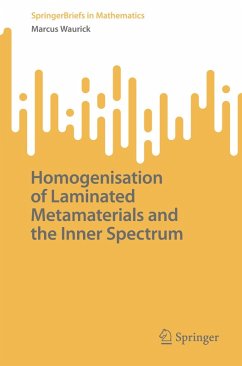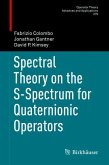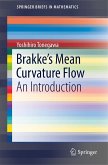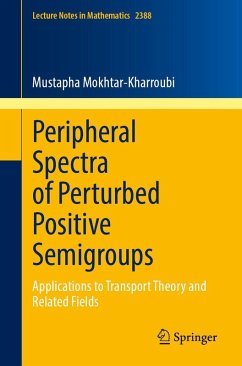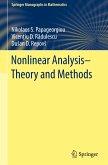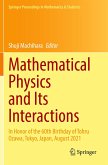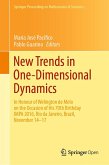This book investigates homogenisation problems for divergence form equations with rapidly sign-changing coefficients. Focusing on problems with piecewise constant, scalar coefficients in a (d-dimensional) crosswalk type shape, we will provide a limit procedure in order to understand potentially ill-posed and non-coercive settings.
Depending on the integral mean of the coefficient and its inverse, the limits can either satisfy the usual homogenisation formula for stratified media, be entirely degenerate or be a non-local differential operator of 4th order. In order to mark the drastic change of nature, we introduce the inner spectrum for conductivities. We show that even though 0 is contained in the inner spectrum for all strictly positive periods, the limit inner spectrum can be empty. Furthermore, even though the spectrum was confined in a bounded set uniformly for all strictly positive periods and not containing 0, the limit inner spectrum might have 0 as an essential spectral point and accumulate at or even be the whole of C. This is in stark contrast to the classical situation, where it is possible to derive upper and lower bounds in terms of the values assumed by the coefficients in the pre-asymptotics.
Along the way, we also develop a theory for Sturm Liouville type operators with indefinite weights, reduce the question on solvability of the associated Sturm Liouville operator to understanding zeros of a certain explicit polynomial and show that generic real perturbations of piecewise constant coefficients lead to continuously invertible Sturm Liouville expressions.
Depending on the integral mean of the coefficient and its inverse, the limits can either satisfy the usual homogenisation formula for stratified media, be entirely degenerate or be a non-local differential operator of 4th order. In order to mark the drastic change of nature, we introduce the inner spectrum for conductivities. We show that even though 0 is contained in the inner spectrum for all strictly positive periods, the limit inner spectrum can be empty. Furthermore, even though the spectrum was confined in a bounded set uniformly for all strictly positive periods and not containing 0, the limit inner spectrum might have 0 as an essential spectral point and accumulate at or even be the whole of C. This is in stark contrast to the classical situation, where it is possible to derive upper and lower bounds in terms of the values assumed by the coefficients in the pre-asymptotics.
Along the way, we also develop a theory for Sturm Liouville type operators with indefinite weights, reduce the question on solvability of the associated Sturm Liouville operator to understanding zeros of a certain explicit polynomial and show that generic real perturbations of piecewise constant coefficients lead to continuously invertible Sturm Liouville expressions.

